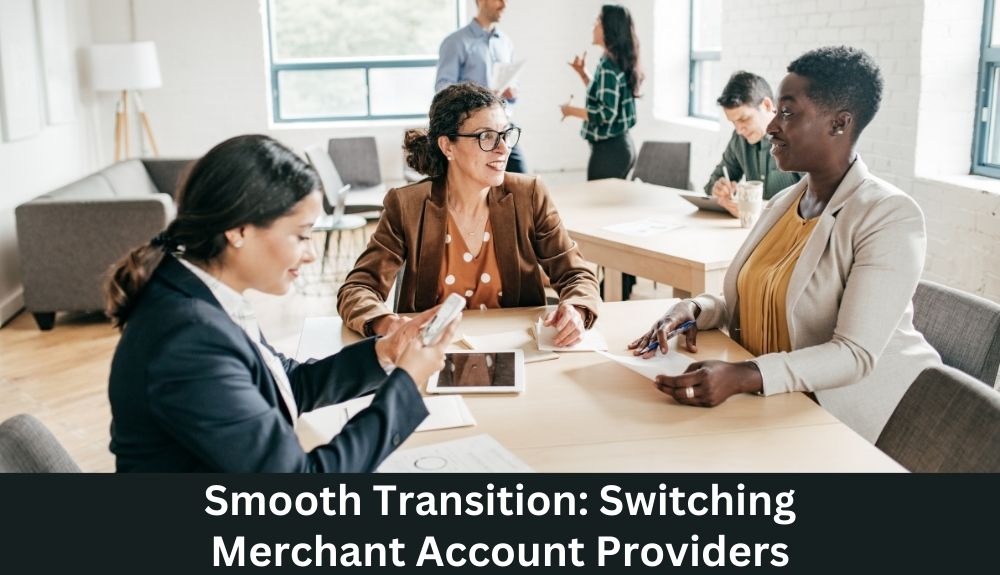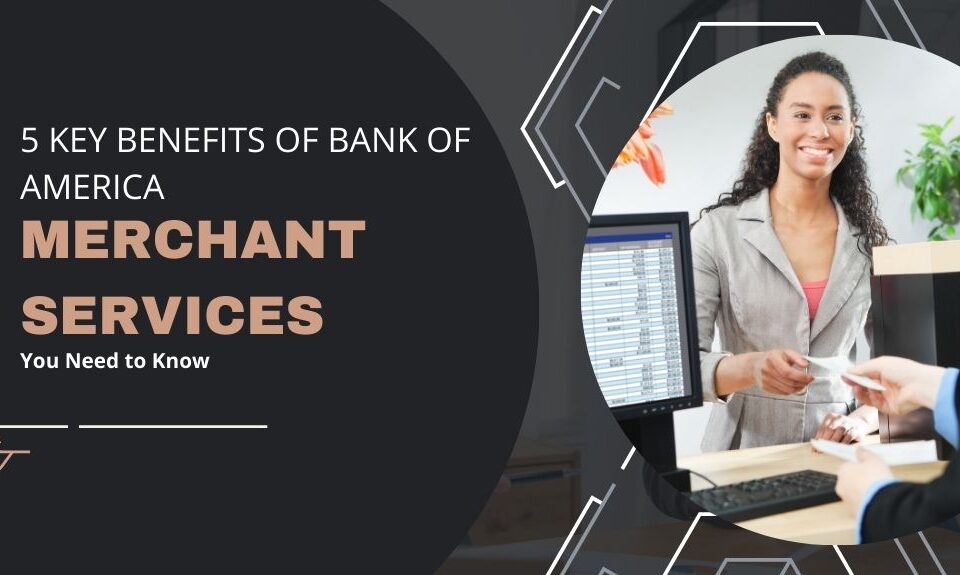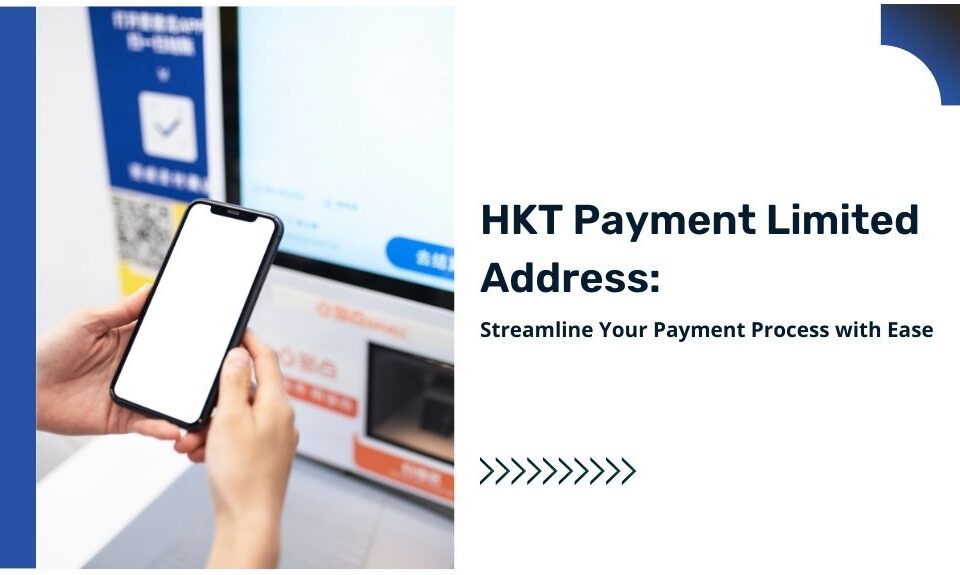Grow Your Profits: Expert Tips on Choosing the Best Merchant Account for Lodging

Best Merchant Accounts for Landscapers: Choose the Right Payment Solution
December 21, 2023
Choosing the Right Merchant Account: The Secret to MLM Success
December 23, 2023Are you a lodging business owner looking to increase your profits? Imagine this scenario: You’ve worked hard to create a beautiful and welcoming space for your guests, and now it’s time to focus on maximizing your revenue. One crucial aspect of growing your profits is choosing the best merchant account for your lodging establishment. But with so many options available, how do you know which one is right for you?
In this blog, we’ll provide expert tips and guidance to help you navigate the complex world of merchant accounts for the lodging industry. Whether you run a small bed and breakfast or a thriving hotel chain, we’ve got you covered. We’ll explore the pain points you may encounter when selecting a merchant account and offer valuable insights to help you make an informed decision.
Throughout this article, we’ll discuss the key factors to consider when choosing a merchant account, such as pricing structures, payment security measures, customer support, and integration capabilities. By the end, you’ll have a clear understanding of how to select the best merchant account that aligns with your business goals and increases your profitability.
1. Understanding Merchant Accounts for Lodging
When it comes to the hospitality industry, having a reliable and efficient payment process is crucial for the success of your hotel business. This is where choosing the best merchant account for lodging becomes paramount. Understanding these merchant accounts and their functionalities is the first step towards improving your payment processing system.
1.1 What is a Merchant Account?
A merchant account is essentially a type of bank account that enables businesses to accept credit and debit card payments. In the context of the hotel industry, having a dedicated merchant account specifically designed for lodging establishments allows you to seamlessly process payments from your guests.
1.2 Different Types of Merchant Accounts for Lodging
In the lodging industry, you’ll come across various types of merchant accounts that cater to the unique needs of hotel businesses. It’s important to understand the differences and features of each type to make an informed decision:
1.2.1 Hotel Merchant Accounts: These are specifically tailored for the hospitality industry. They often come with specialized features such as online booking integration, virtual terminals for remote payments, and contactless payment options.
1.2.2 High-Risk Merchant Accounts: If your hotel business falls into the high-risk category due to factors like chargeback rates or credit history, you might need a high-risk merchant account. These accounts are designed to handle the specific challenges faced by high-risk businesses.
1.2.3 Aggregated Merchant Accounts: Also known as shared merchant accounts, these types of accounts are suitable for small hotel businesses or those just starting out. Aggregated accounts allow multiple businesses to share a single merchant account, making it a cost-effective option with simpler setup processes.
1.2.4 Standard Merchant Accounts: This is the most common type of merchant account and is suitable for established hotels with a stable payment processing history. Standard accounts often offer competitive pricing models and a wide range of features.
1.3 Key Considerations When Choosing a Merchant Account for Lodging
To ensure you choose the best merchant account for your hotel business, consider the following factors:
1.3.1 Cost and Pricing Model: Evaluate the processing fees, monthly subscriptions, and any additional costs associated with the merchant account. Find a pricing model that aligns with your payment volume and budget.
1.3.2 Specific Features: Assess the features offered by different merchant accounts, such as online booking integration, payment gateways, and mobile payment options. Identify which features are essential for streamlining your payment process.
2. Benefits of Choosing the Right Merchant Account
Choosing the right merchant account for your lodging business can have a significant impact on your profits. Here are some key benefits of selecting the best merchant account:
1. Enhanced Payment Processing Efficiency:
By partnering with the right merchant account provider, you can streamline your payment process and offer seamless transactions to your customers. A user-friendly payment gateway and virtual terminal can make it easy for guests to make payments, whether they choose to pay online or at the front desk. This enhanced efficiency leads to increased customer satisfaction and can ultimately result in higher revenue.
2. Improved Security Measures:
In the hotel industry, ensuring the security of customers’ payment information is of utmost importance. With the right merchant account, you can benefit from robust security features such as PCI compliance, data encryption, and tokenization. These measures protect sensitive customer data from potential breaches and fraudulent activities, building trust and credibility with your guests.
3. Access to Relevant Features and Tools:
Different lodging businesses have unique needs and requirements when it comes to their payment processes. The best merchant account providers understand this and offer tailored solutions for the hospitality industry. Whether you need features like online booking integration, contactless payment options, or mobile payment capabilities, the right merchant account can provide you with the necessary tools to meet your specific requirements.
4. Competitive Pricing:
Choosing the right merchant account can also help you optimize your cost structure. Make sure to research and compare various providers to find the one that offers competitive pricing models. Look for transparent pricing with no hidden fees or excessive processing costs that could eat into your profits. By selecting a merchant account with reasonable rates and fees, you can keep your expenses in check and maximize your profitability.
5. Superior Customer Support:
As a small business owner in the hospitality business, you need reliable customer support whenever you face any issues with your merchant account. Opting for a merchant service provider that offers exceptional customer support can provide you with peace of mind. Look for providers that offer 24/7 support, quick response times, and knowledgeable representatives who can assist you promptly.
💡 key Takeaway: Choosing the right merchant account for your lodging business can lead to enhanced payment processing efficiency, improved security measures, access to relevant features and tools, competitive pricing, and superior customer support.
3. Factors to Consider when Choosing a Merchant Account
When it comes to selecting the best merchant account for your lodging business, there are several crucial factors to consider. Making an informed decision will help you maximize your profits and provide a seamless payment experience for your customers. Let’s explore the key considerations to keep in mind:
1. Industry-specific Expertise and Features:
Look for a merchant account provider that has experience working with businesses in the hotel industry. They should understand the unique needs and requirements of the hospitality business.
Consider the specific features that are essential to your lodging business. For example, if you offer online booking services, ensure that the merchant account supports a secure and efficient payment gateway.
2. Pricing and Costs:
Understand the various pricing models offered by different merchant account providers. Compare the processing fees, monthly subscription fees, and any additional costs associated with the service.
Evaluate the pricing in relation to the services and features included. A lower processing fee may seem attractive, but it’s important to ensure that the provider offers the necessary support and infrastructure to meet your hotel’s payment processing demands.
3. Customer Support and Service:
Excellent customer support is crucial when it comes to handling payments smoothly. Look for a merchant account provider that offers reliable and responsive customer support, available via multiple channels.
Consider the availability of technical support for any issues that may arise with your payment processing system. Prompt and knowledgeable assistance can minimize disruptions and ensure a positive experience for both you and your customers.
4. Integration and Compatibility:
Seamless integration with your existing systems, such as your hotel management software or point-of-sale (POS) systems, is essential. Ensure that the merchant account provider offers easy integration options or has partnerships with popular hospitality software providers.
If you are interested in contactless payment or mobile payment solutions, check whether your preferred merchant account supports these technologies, allowing you to cater to modern payment preferences.
5. Security and Fraud Prevention:
Payment security is of utmost importance, especially in the lodging industry where customers trust you with their sensitive credit card information. Look for a merchant account provider that offers robust security measures, such as encryption and tokenization, to protect both your customers and your business from potential fraud.
Explore the fraud prevention tools and features provided by the merchant account. Advanced fraud detection systems can help minimize chargebacks and protect your hotel against fraudulent transactions.
4. Types of Merchant Accounts for Lodging Businesses
When it comes to choosing the best merchant account for your lodging business, it’s important to understand the different types available. Each type offers specific features and benefits tailored to the unique needs of the hospitality industry. Let’s explore the various types of merchant accounts to help you make an informed decision:
1. Traditional Merchant Accounts:
These accounts are offered by banks or financial institutions.
They require extensive research and documentation for approval.
Typically, traditional merchant accounts offer lower processing fees.
They allow you to accept debit and credit card payments from guests.
However, they may have higher setup costs and longer approval times.
2. High-Risk Merchant Accounts:
If your lodging business falls under the high-risk category, such as serving international travelers or having a higher potential for chargebacks, you may need a high-risk merchant account.
These specialized accounts accommodate businesses with unique needs.
They may offer specific risk management tools and chargeback prevention measures.
However, high-risk merchant accounts often come with higher processing fees.
3. Mobile Payment Solutions:
In today’s digital era, mobile payment solutions have gained popularity.
These solutions allow you to accept payments through smartphones or tablets.
They are ideal for on-the-go businesses or those without a physical storefront.
Mobile payment providers offer easy integration and contactless payment options.
4. Virtual Terminals:
Virtual terminals enable you to process credit card transactions securely over the internet.
They are particularly useful for businesses that receive reservations or bookings online.
Virtual terminals can be accessed from any device with an internet connection, making them convenient for remote operations.
Remember, when choosing a merchant account, consider your specific business requirements, such as your target customer base, transaction volume, and payment methods. It’s essential to compare pricing models, including processing fees, monthly fees, and any additional costs associated with each type of account.
💡 key Takeaway: Understanding the different types of merchant accounts available for lodging businesses is crucial for making an informed decision that aligns with your specific needs and requirements. Consider factors such as processing fees, approval times, and the ability to accept various payment methods before selecting the best option for your hotel business.
5. Key Features to Look for in a Merchant Account
Choosing the right merchant account for your lodging business is crucial for maximizing profits and ensuring a smooth payment process. As a small business owner in the hospitality industry, you need a merchant account that caters to the unique needs of your hotel or lodging establishment. Here are five key features to look for when selecting the best merchant account:
1. Payment Gateway Integration:
A reliable payment gateway integration is essential for seamless online bookings and credit card payments. Make sure the merchant account offers a secure and user-friendly payment gateway that can be easily integrated with your website’s booking system. This will allow your customers to make payments conveniently and securely, enhancing their overall experience.
2. Virtual Terminal Capability:
As a hotel business, you might need the flexibility to accept payments over the phone or through mail orders. Look for a merchant account that provides a virtual terminal, which allows you to manually enter card information and process transactions without the need for a physical credit card terminal. This feature is especially useful when handling reservations made via phone or email.
3. Customer Support:
In the hospitality industry, providing excellent customer service is paramount. Therefore, choosing a merchant account provider that offers reliable and responsive customer support is crucial. Ensure the provider has a dedicated support team available 24/7 to address any technical issues or concerns that may arise during the payment process. Look for testimonials or reviews that highlight their customer support quality to ensure you receive the assistance you need, when you need it.
4. Competitive Processing Fees:
Processing fees can significantly impact your bottom line, especially for high-volume transactions typically seen in the lodging industry. When selecting a merchant account, carefully evaluate the processing fees to ensure they are competitive and align with your business’s revenue model. Compare different merchant service providers to find the best pricing model that suits your specific needs and business goals.
5. Industry-Specific Features:
The hotel and lodging industry has unique requirements when it comes to payment processing. Look for a merchant account that offers industry-specific features such as easy integration with your property management system (PMS), support for mobile payment solutions, and compatibility with contactless payment technologies. These features not only enhance the payment experience for your guests but also streamline your operations, saving you time and effort.
💡 key Takeaway: When choosing a merchant account for your lodging business, focus on payment gateway integration, virtual terminal capability, customer support, competitive processing fees, and industry-specific features.
6. Evaluating Merchant Account Providers

When it comes to choosing the best merchant account for your lodging business, the process can feel overwhelming. With numerous options and factors to consider, it’s crucial to evaluate different merchant account providers carefully. By following these expert tips, you can navigate through the selection process confidently, ensuring that you find the best option that aligns with your unique needs.
1. Determine Your Payment Processing Needs
Start by assessing your specific requirements for payment processing. Consider factors such as the volume of transactions you anticipate, the types of payments you want to accept (credit cards, debit cards, online bookings), and any unique features or integrations you require (contactless payment, mobile payments, virtual terminals).
2. Research Providers with Experience in the Hotel Industry
It’s essential to work with a merchant account provider that understands the intricacies of the lodging and hospitality industry. Look for providers with a proven track record in serving hotel businesses, as they will have a better understanding of your specific needs and challenges.
3. Evaluate Pricing Models and Fees
Carefully review the pricing models and fee structures offered by different merchant account providers. Look beyond just the cost of the initial setup, monthly fees, and processing fees. Consider any additional costs or extra fees that may be associated with the account, such as equipment costs, PCI compliance fees, chargeback fees, or cancellation fees.
4. Assess Customer Support and Service
An exceptional level of customer support and service is vital when it comes to merchant account providers. Look for providers that offer 24/7 customer support, as well as clear communication channels for inquiries and assistance. Read reviews and testimonials to gauge the reputation of the providers in terms of their customer service.
5. Consider Security and Compliance
In the hospitality industry, ensuring the security of your guest’s credit card information is crucial. Evaluate the security measures implemented by each merchant account provider, such as encryption protocols, fraud prevention tools, and PCI compliance. Look for providers that prioritize data security to ensure your guests’ trust and protect your business from potential fraud or data breaches.
6. Review Integration Options and Ease of Use
Evaluate how easily the merchant account provider integrates with your current systems, such as your hotel management software or online booking platform. Seamless integration can save you time and effort, streamlining your payment processes and reducing the potential for errors.
💡 key Takeaway: When evaluating merchant account providers for your lodging business, consider your specific payment processing needs, prioritize experience in the hotel industry, review pricing.
7. Understanding Payment Gateway Integration
Payment gateway integration is a crucial aspect of setting up a merchant account for lodging. It enables online transactions and secure payment processing for your hotel or hospitality business. In this section, we will explore the importance of payment gateway integration and how it can benefit your operations.
1. What is Payment Gateway Integration?
Payment gateway integration refers to the process of linking your merchant account with a payment gateway provider. It allows you to accept credit card and debit card payments securely through your website or online booking system.
As a hotel owner or small business owner in the hospitality industry, integrating a payment gateway ensures smooth transactions for your guests and streamlines your payment process.
2. Seamless Online Booking Experience
By integrating a payment gateway, you can offer your customers a seamless online booking experience. Guests can easily make reservations and instantly pay for their stay, enhancing convenience and customer satisfaction.
With a secure payment gateway, customers can trust that their sensitive payment information is well-protected, leading to increased confidence in your hotel’s online booking system.
3. Enhanced Security Features
Payment gateways are equipped with advanced security features designed to protect sensitive data during online transactions. These features include encryption protocols and fraud detection mechanisms, ensuring secure payment processing for both your business and your guests.
By prioritizing security through payment gateway integration, you demonstrate your commitment to protecting your customers’ data, which in turn enhances trust and credibility in your hotel or lodging establishment.
4. Reducing Risk and Fraud
A reliable payment gateway can help minimize the risk of fraudulent transactions. With robust fraud detection tools and real-time monitoring, suspicious activities are flagged, allowing you to take immediate action to prevent potential fraudulent transactions.
Moreover, many payment gateways offer chargeback management services, assisting you in efficiently resolving disputes and reducing financial losses related to chargebacks.
5. Flexible Payment Options
Payment gateway integration provides your guests with various payment options that cater to their preferences. Whether it’s traditional credit card payments, debit cards, or contactless payment methods such as mobile payments, a well-integrated gateway allows you to accommodate a wide range of payment preferences.
This flexibility in payment options contributes to a positive guest experience, as it allows them to choose the most convenient and secure payment method for their stay.
💡 key Takeaway: Payment gateway integration is a vital component of your lodging business’s online payment process.
8. Assessing Merchant Account Fees and Pricing Structures
When it comes to selecting the best merchant account for your lodging business, assessing the fees and pricing structures is crucial. Understanding the cost implications and the different options available will help you make an informed decision that aligns with your budget and business needs.
1. Processing Fee Options:
Flat Rate: Some merchant account providers offer a flat rate processing fee, which means you pay a fixed percentage for each transaction, regardless of the card type or transaction value. This can be a convenient option for businesses with predictable transaction volumes.
Interchange Plus: With the interchange plus pricing structure, you pay the interchange fees set by the card networks, plus a small markup added by the merchant account provider. This pricing model offers transparency and can be cost-effective for larger businesses or those with high average transaction values.
2. Monthly Fees:
Monthly Subscription Fee: Certain merchant account providers charge a monthly subscription fee, which covers access to their payment processing platform and additional features. This model is ideal for businesses that require advanced tools and dedicated customer support.
No Monthly Fee: Alternatively, some providers offer merchant accounts with no monthly fee. If your business is just starting or has low transaction volumes, this option can help minimize costs.
3. Additional Costs:
Payment Gateway Fees: A payment gateway is a necessary component for online transactions. Some merchant account providers charge a separate fee for using their payment gateway service. It’s important to consider these costs when evaluating different options.
Setup and Termination Fees: Be aware of any one-time setup or termination fees that may apply. These fees vary among providers, so compare them carefully before making a decision.
4. Specialized Features for Lodging Businesses:
Virtual Terminal: A virtual terminal allows you to process credit card payments manually, helpful for accepting phone reservations or collecting payments without a physical card present.
Online Booking Integration: If your lodging business utilizes an online booking system, make sure the merchant account provider integrates seamlessly with it, allowing for automated payment processing and streamlined operations.
💡 key Takeaway: Assessing merchant account fees and pricing structures is vital to choosing the best option for your lodging business. Consider the processing fee options, monthly fees, additional costs, and specialized features that cater to the unique needs of the hospitality industry. Explanation: This section provides a comprehensive overview of assessing merchant account fees and pricing structures for lodging businesses.
9. Best Practices for Merchant Account Security
Ensuring the security of your merchant account is crucial for any business, especially in the hospitality industry where credit card transactions are frequent. By implementing these best practices, you can safeguard your sensitive information and protect your customers’ financial data.
1. Implement Secure Payment Gateways
Choose a payment gateway that employs encryption technology to secure sensitive data during online transactions. Encrypting customer information, such as credit card details, ensures that it cannot be intercepted or accessed by unauthorized individuals.
2. Utilize Tokenization
Tokenization is a process that replaces actual credit card numbers with unique tokens. These tokens are used for transaction processing, allowing you to enhance security by storing sensitive information in a separate, secure system.
3. Security Assessments and Audits
Regularly conduct security assessments and audits to identify any vulnerabilities in your systems. This will help you address potential risks and ensure that your merchant account remains secure.
4. Implement Strong Password Policies
Enforce a strong password policy for all employees who have access to the merchant account. Passwords should be complex, unique, and periodically changed. Additionally, consider implementing two-factor authentication for an extra layer of security.
5. Regularly Update Software and Systems
Keep your payment processing software, hardware, and operating systems up to date with the latest security patches. Regular updates help protect against known vulnerabilities and ensure that you are using the most secure versions available.
6. Train Employees on Security Practices
Educate your staff members on the importance of security practices and provide training on how to identify and respond to potential security threats. Promote a culture of security awareness throughout your organization.
7. Monitor Suspicious Activity
Implement real-time monitoring tools to detect any suspicious activity, such as unusual transaction patterns or unauthorized access attempts. Promptly respond to any alerts and investigate potential security breaches.
8. Regularly Backup and Test Data
Regularly backup your merchant account data and test the restoration process. This ensures that you can quickly recover data in the event of a security incident or system failure.
9. Partner with a Reliable Merchant Service Provider
Choose a reputable and experienced merchant service provider that prioritizes security. Look for providers that have robust security measures in place and are compliant with industry standards such as PCI-DSS (Payment Card Industry Data Security Standard).
💡 key Takeaway: Implementing best practices for merchant account security is essential to protect your business and customers’ sensitive information.
10. Choosing the Right Merchant Account Provider for Your Lodging Business
When it comes to running a lodging business, having a reliable and efficient payment processing system is crucial for keeping your operations smooth and your profits growing. One of the key components of such a system is a merchant account provider that caters specifically to the unique needs of the hospitality industry. But with so many options available in the market, how do you choose the right one for your business? Here are 10 expert tips to help you make an informed decision.
1. Assess Your Business Needs
Start by evaluating your specific requirements as a lodging business. Consider factors like the volume of transactions, the types of payments you want to accept (credit cards, debit cards, mobile payments, etc.), and any other unique needs you might have. This will help you narrow down the list of potential merchant account providers.
2. Determine Your Budget
Understanding your budget is crucial when choosing a merchant account provider. Consider not just the upfront costs, but also any ongoing fees, such as processing fees, monthly subscription fees, and additional costs for specific features or integrations. Take into account your projected transaction volume and revenue to ensure the chosen provider aligns with your financial goals.
3. Research Reputation and Trustworthiness
Look for merchant account providers with a solid reputation for providing reliable and secure payment processing solutions. Read reviews, check testimonials, and ask for recommendations from other business owners in the hospitality industry. Choose a provider known for excellent customer support and a positive track record of serving businesses in the hotel industry.
4. Consider Experience and Specialization
Opt for a merchant account provider that has experience working with businesses in the hospitality sector. They will have a better understanding of your industry-specific needs and can provide tailored solutions to enhance your payment process. A provider with industry expertise can also offer valuable insights and guidance for growing your lodging business.
5. Evaluate Payment Processing Options
Look for a merchant account provider that offers a variety of payment processing options to meet the diverse preferences of your guests. This includes traditional credit card processing, online booking payment gateways, virtual terminals, contactless payments, and mobile payment solutions. Having multiple options will ensure a seamless and efficient payment experience for your customers.
6. Compare Pricing Models
Different merchant account providers have varied pricing models, such as interchange-plus pricing or flat-rate pricing. Understanding the pricing structure is crucial to assess the overall cost of the service.
11. Smooth Transition: Switching Merchant Account Providers

When it comes to running a lodging business, choosing the right merchant account provider is crucial for ensuring smooth payment processing and ultimately growing your profits. However, circumstances may arise where you find it necessary to switch to a new merchant account provider. This section will provide expert tips to help you navigate through this transition seamlessly.
1. Assess Your Current Needs
Before making the switch, take the time to evaluate your current needs and identify any pain points with your existing merchant account. Consider factors such as the types of credit cards you accept, the size of your business, and the specific features required in the hotel industry.
2. Research Potential Providers
To find the best merchant account provider for your lodging business, conduct extensive research. Look for providers with experience in the hotel credit card processing industry and a solid reputation for customer support within the hospitality business.
3. Compare Pricing Models
Different merchant account providers may offer various pricing models, including processing fees, monthly fees, and additional costs for specific features or services. Compare these pricing models to determine which provider offers the best value for your unique needs. Keep in mind that the lowest price may not always be the best option; quality customer support and reliable payment processing are also essential factors to consider.
4. Consider Integration Options
Ensure that the new merchant account provider you choose offers seamless integration with your existing payment gateway, online booking system, or any other essential tools your hotel uses. Easy integration will minimize disruptions and help maintain a smooth customer experience.
5. Review the Transferring Process
Reach out to your potential new merchant service provider and inquire about their transferring process. Ask about the steps involved in transferring your merchant account data, obtaining a new terminal if necessary, and integrating the new payment processor into your systems. Clear communication and assistance from the new provider will facilitate a smooth transition.
6. Test and Optimize
Once you have switched over to the new merchant account provider, thoroughly test the payment processing system to ensure it functions flawlessly within your hospitality business. Optimize the new system according to your requirements, considering features such as contactless payment options and integration with your existing.
12. Future Trends in Merchant Account Services for the Lodging Industry
With the rapid advancements in technology and the evolving needs of the hospitality industry, merchant account services for the lodging industry are also experiencing notable changes and developments. It is vital for small business owners in the hotel business to stay up-to-date with these trends to ensure they choose the best merchant account that aligns with their unique needs and maximizes their profitability.
1. Contactless Payment Solutions
In response to the global pandemic, contactless payment solutions have gained significant popularity in the hospitality industry. With contactless payments, guests can make transactions using their mobile devices or contactless cards, eliminating the need for physical contact and enhancing convenience and safety. Incorporating contactless payment options into your merchant account can provide a seamless payment process for your guests and boost customer satisfaction.
2. Mobile Payment Integration
As more travelers rely on their mobile devices for various tasks during their stays, integrating mobile payment options into your merchant account can streamline the payment process. By enabling guests to make payments directly from their smartphones, you can enhance their experience and offer a convenient and efficient payment solution.
3. Online Booking and Payment Integration
The ability to book and pay for accommodations online has become crucial for the lodging industry. Integrating online booking and payment functionality into your merchant account can simplify the reservation and payment process, allowing guests to book and pay for their stays seamlessly. This not only saves time for your customers but also increases your operational efficiency.
4. Enhanced Security Measures
In an era where cybersecurity threats are constantly evolving, ensuring the security of your guests’ payment information is of paramount importance. Future trends in merchant account services for the lodging industry include the implementation of enhanced security measures such as tokenization, encryption, and fraud detection systems. These measures safeguard sensitive data, instill confidence in your customers, and protect your business from potential liabilities.
5. Personalized Customer Support
The role of customer support in the hospitality industry cannot be overstated. In the future, merchant account providers are expected to focus on delivering personalized customer support tailored to the specific needs of the lodging industry. Having a reliable support system that understands the challenges and dynamics of the hotel business can significantly impact your operations and enhance customer satisfaction.
💡 key Takeaway: Stay ahead of the curve by choosing a merchant account for your lodging business that incorporates future trends, such as contactless payment solutions, mobile payment integration, online booking and payment capabilities, enhanced security measures, and personalized customer support.
Conclusion
In conclusion, choosing the best merchant account for your lodging business can make a significant impact on your profits. By understanding your specific needs and considering factors such as transaction fees, security features, and customer support, you can find the perfect solution to streamline your payment processes. Remember to thoroughly research and compare different merchant account providers to ensure you make an informed decision. Look for testimonials and reviews from other lodging businesses to get a sense of the provider’s reliability and reputation in the industry. Additionally, consider the future growth of your business and whether the merchant account can scale with your evolving needs. The ability to accept various payment methods and integrate with your existing systems should also be taken into account.




